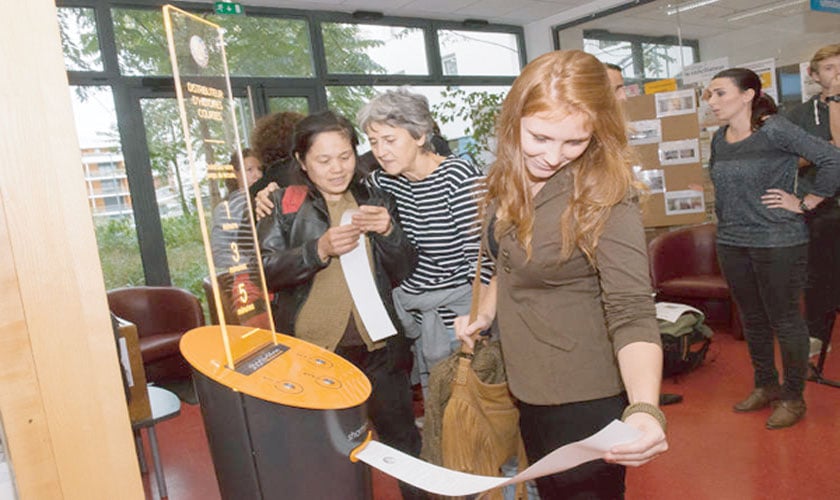Knitting, crocheting and jam-making improve mental health
Knitting, crocheting and jam-making have never been associated with great thrills – but, it turns out, they work wonders for well-being.
A study has found that people who participate in arts and crafts feel happier, calmer and more energetic the next day.
The activities which the researchers listed also included cooking, baking, performing music, painting, drawing, sketching, digital design and creative writing. All have in common that they are relaxed and creative.
The study took place at Otago University, New Zealand, where 658 students were asked to keep diaries of their experiences and emotional states over 13 days.
The study, which was published in the Journal of Positive Psychology, found that the students showed more enthusiasm and ‘flourishing’ – a mental health term describing happiness and meaning – in the days following creative activities.
There is growing recognition in psychology research that creativity is associated with emotional functioning.
Engaging in creative behaviour leads to an increase in well-being the next day, and this increased well-being is likely to facilitate creative activity on the same day.
Overall, these findings support the emerging emphasis on everyday creativity as a means of cultivating positive psychological functioning.
Vending machines dispense short
stories to bored French commuters

In a time when progression in every field of human endeavour involves ever smarter phones, virtual reality or colonising Mars, it is of some comfort to hear that a new innovation exciting people across the English channel involves none of the above.
Instead, it is a number of small vending machines dotted about French train stations that dispense short stories for free at the press of a button that are becoming increasingly popular.
The project by short story specialist publishers Short Édition began life in Grenoble, where locals now frequent the tourism office to pick up more literature, but has since been rolled out across the country – including an outpost in the San Francisco café Café Zoetrope, owned by director Francis Ford Coppola.
There are now 32 across France – at train stations, cafes, museums and libraries, including 11 in Paris, with plans for more by the end of the year.
The machines work thus: the black and orange hub labelled “Distributeur d’histories courtes” (Short-story distributor) has three numbered buttons – one, three and five – indicating how many minutes it will take to read the story that emerges on a paper scroll should the corresponding button be pressed.
Readers are then free to return to consume as many tales as possible before their train arrives or they’re booted out of the café.
The stories are taken from a database of approaching 5,000 anonymous authors curated via a submission competition run by Short Édition. The stories in France come out in French – however, the machine in San Francisco produces tales in English.
The vended stories range from humour and children’s to horror and romance, but are all standalone. The machines are bought or rented by various organisations that host them (roughly €500 a month), enabling the stories to be free to the public.